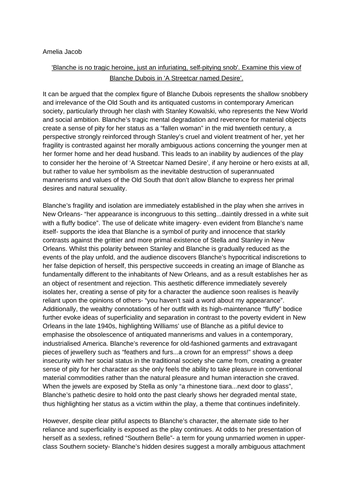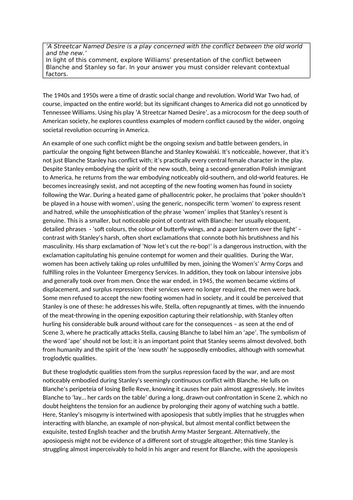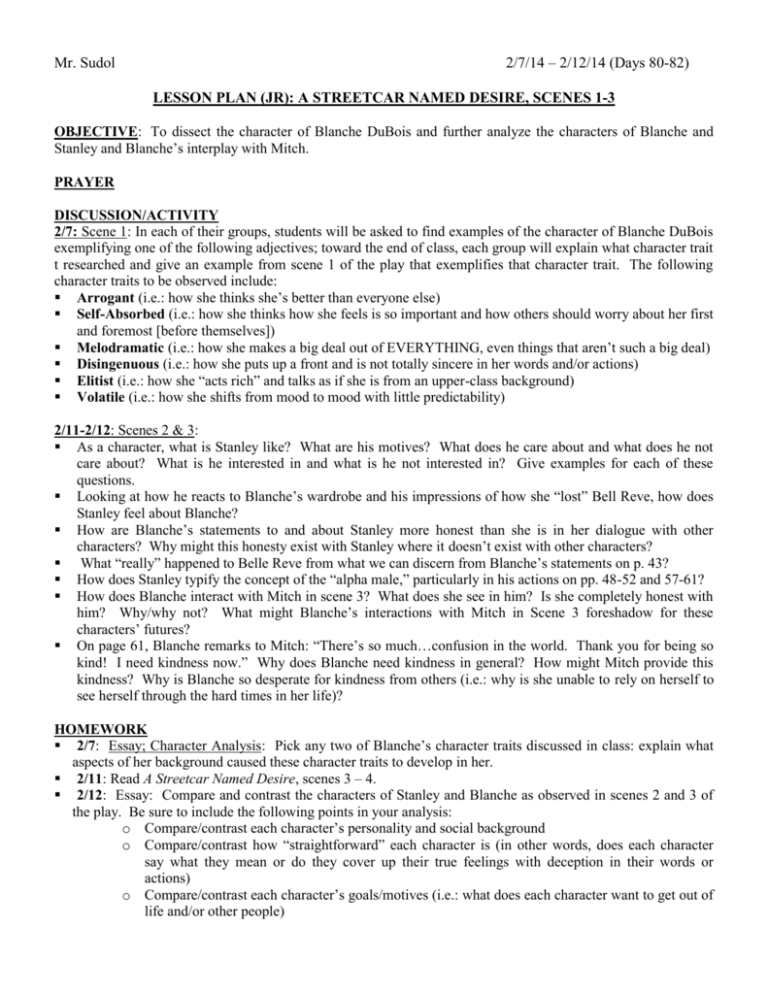A Streetcar Named Desire, written by Tennessee Williams and first performed in 1947, is a Pulitzer Prize-winning play that explores themes of desire, sexuality, and power dynamics within relationships. Set in New Orleans, the play follows the story of Blanche DuBois, a faded Southern belle who arrives at the home of her sister, Stella, and her husband, Stanley Kowalski, after losing her family fortune and plantation. As Blanche and Stanley clash over their differences in class, temperament, and values, the play delves into deep psychological themes of repression, illusion, and the destructive power of desire.
One of the central themes of A Streetcar Named Desire is the conflict between illusion and reality. Blanche, who is struggling to come to terms with the loss of her family's social status and the death of her young husband, seeks to escape from reality through a series of delusions and lies. She tells stories about her past and presents herself as a refined and sophisticated woman, but in reality, she is deeply troubled and has a history of promiscuity and alcoholism. Stanley, on the other hand, is a rough and physical man who is deeply connected to the earth and reality. He sees through Blanche's lies and is disgusted by her pretensions, leading to a deep animosity between the two characters.
Another important theme in the play is the power dynamics within relationships. Blanche and Stanley are constantly at odds over their differences in class and temperament, with Blanche trying to assert her superiority and Stanley trying to assert his dominance. This power struggle comes to a head when Stanley rapes Blanche, an act that represents the ultimate violation of her power and dignity. The play also explores the complex and abusive relationship between Stanley and Stella, as Stanley's possessive and violent behavior towards Stella reveals the toxic dynamics of their marriage.
A Streetcar Named Desire is a powerful and thought-provoking play that explores themes of desire, sexuality, and power dynamics within relationships. Its characters are complex and multi-dimensional, and their struggles and conflicts are deeply relatable and relevant to modern audiences. The play's themes of illusion and reality, and the destructive power of desire, continue to resonate with audiences today, making it an enduring classic of modern literature.







.jpg)